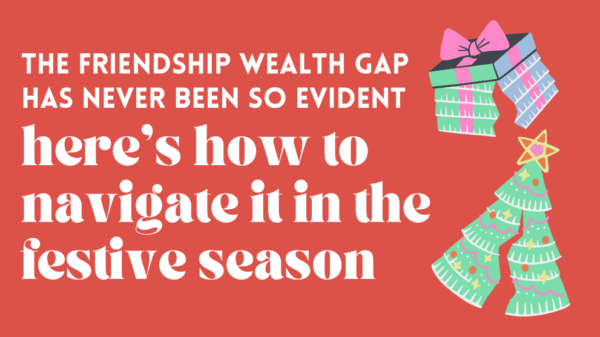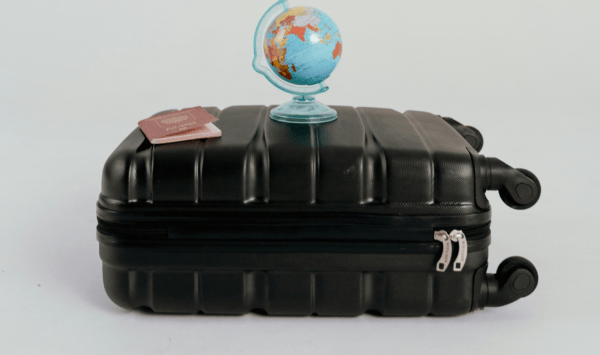
Friendship Wealth Gap in the Festive Season: How to Navigate & Bridge the Gap

When the festive season arrives, the difference in income between you and your friends becomes more evident than ever. Some friends may have the luxury of being able to buy extravagant gifts, while others who are struggling may feel under pressure to reciprocate in the same way, and end up spending more than they can afford. Whether you’re on the higher or lower end of the scale, it can make it tricky and uncomfortable when it comes to making plans.
According to Google trend data, searches for “friends have more money” have risen by 1085% over the past month, so finance expert Georgia Galloway at Finbri reveals how to navigate and bridge the wealth gap between you and your friends – so you can make it to the new year with your friendship intact.

DON’T COMPARE YOURSELF
The friendship wealth gap can be a huge source of stress at this time of year, and it’s very easy to start comparing yourself to your friends, strangers online, and even your past self, if you’ve had a recent drop in income. This won’t help how you’re feeling, but sets unrealistic expectations and leads to you feeling inadequate, disappointed, and jealous – which can put a strain on even the strongest of friendships.
Comparing yourself to others can give you a distorted perception of your own financial situation. Even if you’re doing well, focusing on what others have can make you feel like you don’t have enough, but the everyone’s financial situation is different, and it’s unfair to compare.
ACKNOWLEDGE THE GAP
The first step in bridging the wealth gap is acknowledging its existence; pretending it’s not there can lead to tension, embarrassment, and resentment. It’s important to have an open and honest discussion about the differences you’re feeling. Talk to your friends about your money worries, and encourage them to do the same. You might be surprised by their financial situations, too – they could have been feeling the same way but have been unsure how to bring it up.
ESTABLISH BOUNDARIES
Set a budget for gifts, activities, and nights out, that everyone is comfortable with. Setting realistic expectations is the best way to avoid anyone having feelings of guilt or inadequacy. Be specific about what you can and can’t afford. For example, you might be able to afford to go out for a group dinner but not buy a gift for everyone, or you might be able to suggest Secret Santa, so you only have to buy one gift.
It’s important to make sure that the whole group will stick to the budget that you’ve chosen; it can be uncomfortable for everyone if one person goes above and beyond, no matter how grateful the recipient might be.
GET CREATIVE & GIVE ALTERNATIVE SUGGESTIONS
Instead of material gifts, focus on creating experiences with friends instead. A scaled-down festive season doesn’t have to mean doing nothing at all. Suggest a potluck dinner, rather than one person cooking for everyone or going out for a meal, or going to a free festive event together instead of buying gifts.
If you do still want to exchange gifts, however, suggest that all gifts have to be second hand or homemade – this means you can all spend a day thrifting or crafting together. You could also suggest that you gift each other with a helping hand with your time or skills; from promising a few evenings of babysitting, to helping out with their side hustle business one weekend.
DON’T FEEL OBLIGATED
Don’t feel like you have to spend money, just because you always have done in the past. Maybe you have always gone out for an extravagant night out to celebrate New Years Eve, but you know your budget can’t stretch to it this year, don’t be afraid to decline the invitation. Your friends will understand – and might be feeling the same way – so will be happy to make a different, less expensive plan.
Emphasise the fact that you want to make the festive period special despite the financial limitations – you don’t have to spend a lot of money to have fun or to show that you care!













































